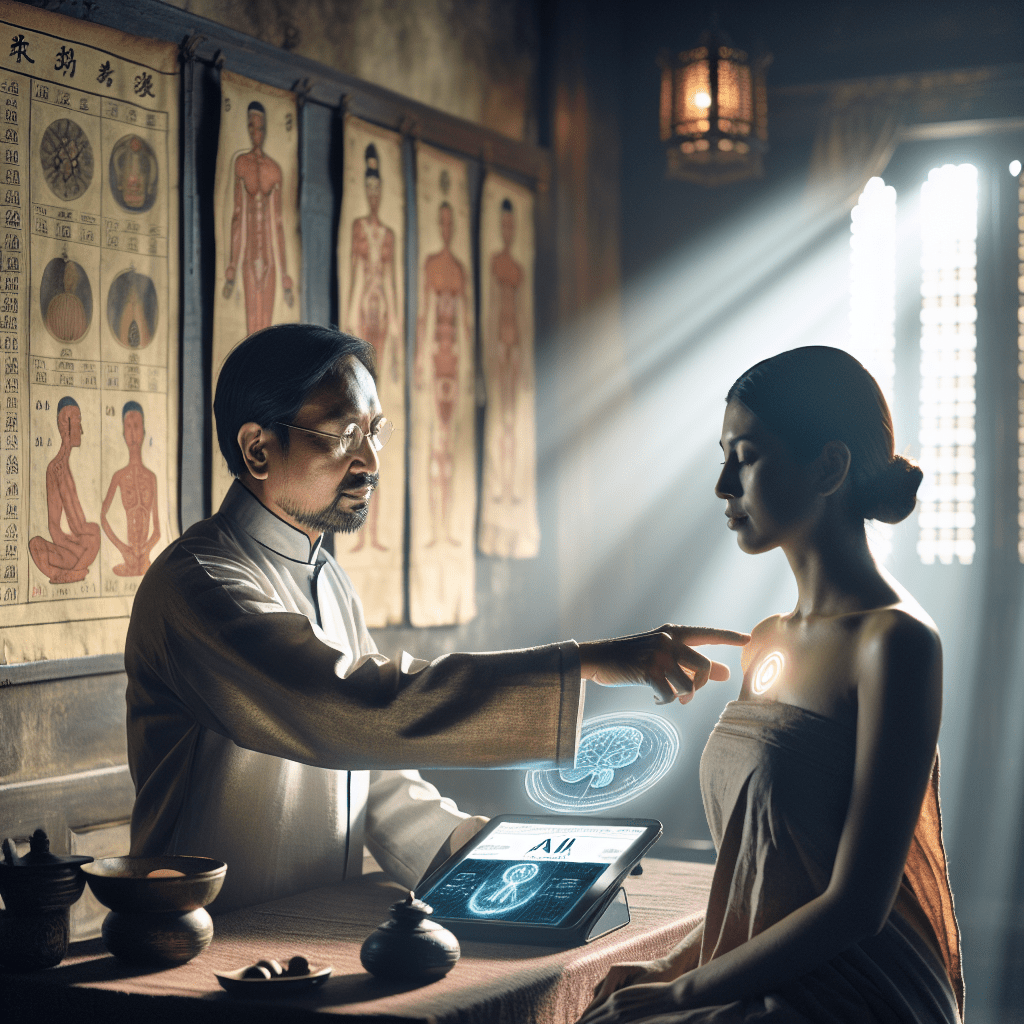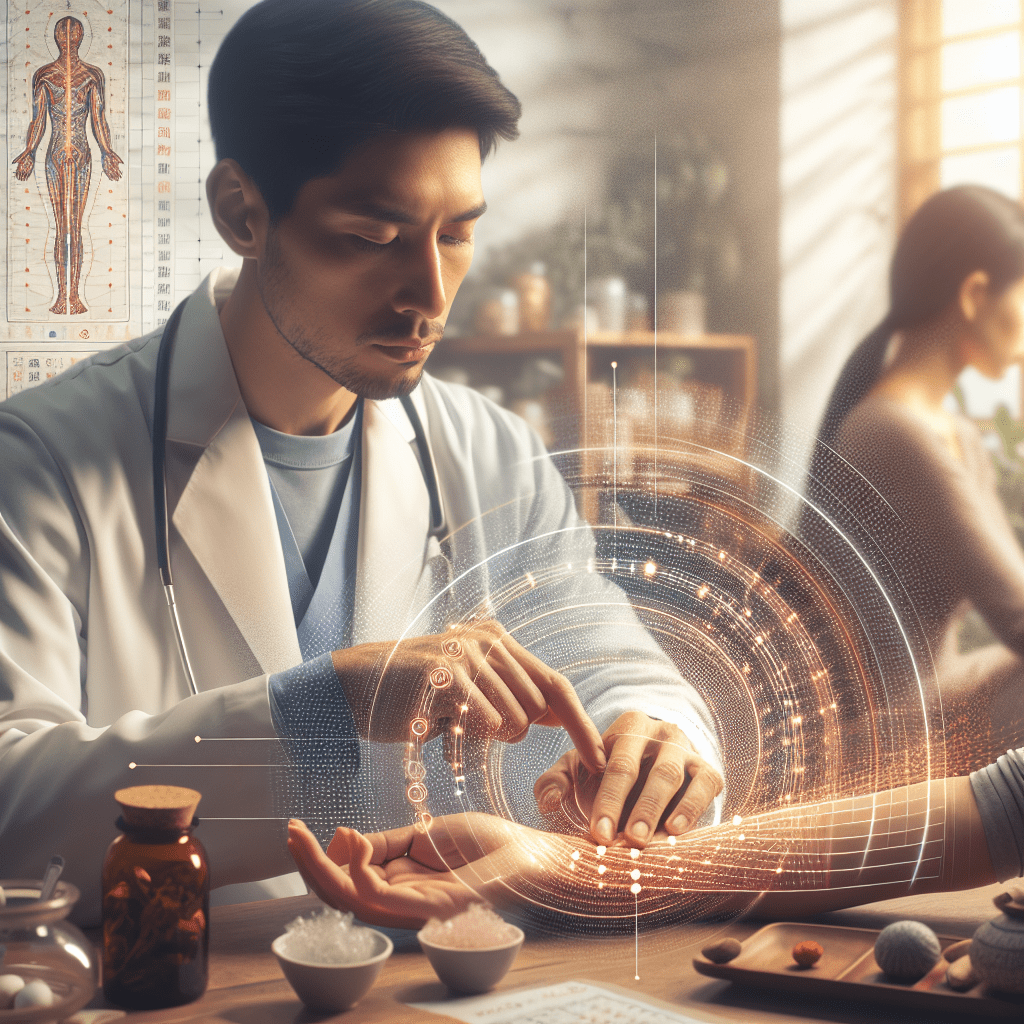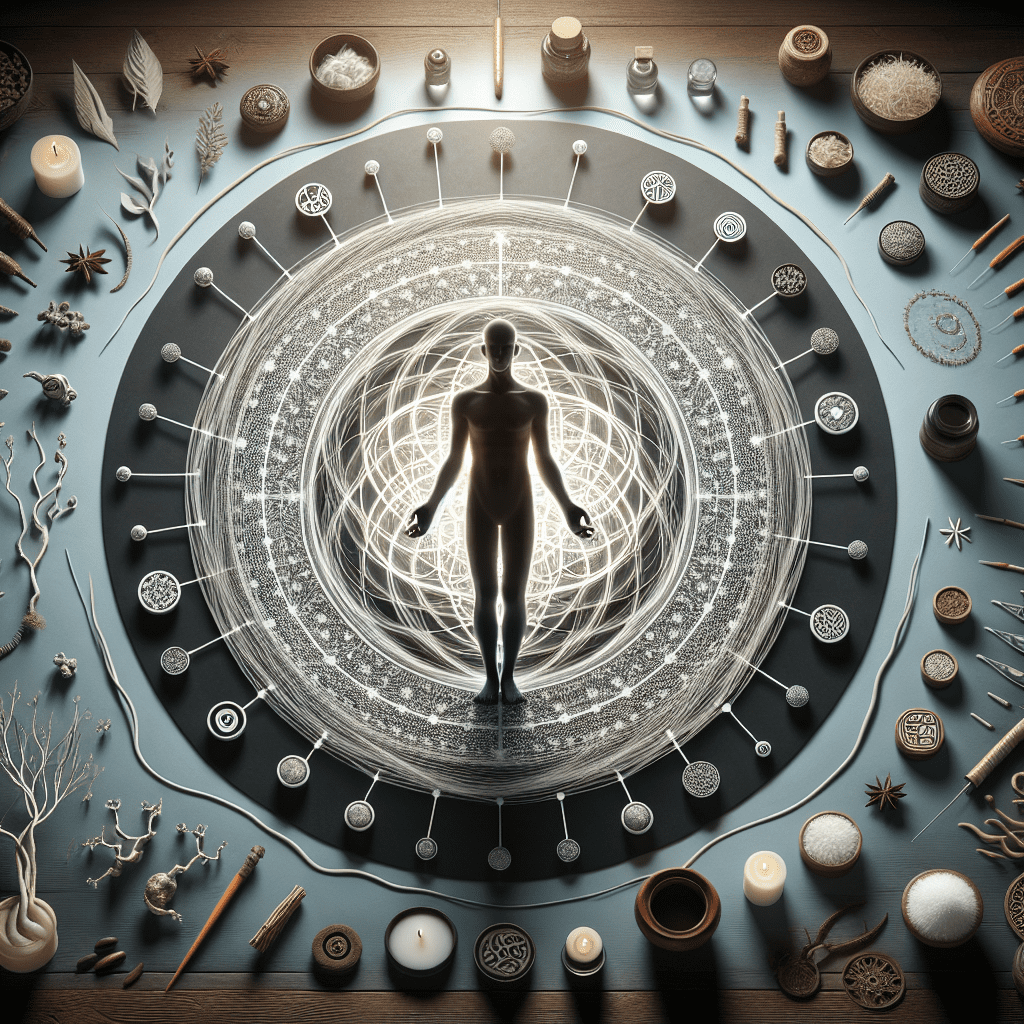In a world where technology evolves at lightning speed, an unexpected fusion is taking place in the health sector. Traditional Chinese Medicine (TCM), with its 2,000-year-old wisdom, is embracing digital transformation to create what experts now call Digital TCM. This revolutionary approach combines time-tested healing methods with cutting-edge technologies like algorithms, comprehensive databases, and sophisticated machine learning systems. For health enthusiasts seeking both ancestral wisdom and modern science in their wellness journey, Digital TCM offers an exciting pathway that bridges ancient knowledge with today’s technological capabilities.
Digital TCM isn’t simply about digitizing old texts or creating mobile apps for herbal remedies. It represents a fundamental shift in how Eastern medicine is practiced, researched, and delivered to patients worldwide. By harnessing the power of big data analytics, artificial intelligence, and cloud computing, TCM practitioners can now provide more personalized, efficient, and evidence-based care than ever before. This technological revolution is making the profound healing insights of Eastern medicine more accessible and adaptable to our contemporary lives.
The Algorithmic Revolution in Traditional Medicine
The marriage of ancient diagnostic techniques with modern computational power is revolutionizing how TCM practitioners analyze and treat health conditions.
At the heart of Digital TCM lies powerful algorithms that process vast amounts of patient information to optimize personalized treatment plans. These computational processes can analyze thousands of historical cases in seconds, identifying patterns that might take human practitioners decades to recognize. By examining correlations between symptoms, constitutional types, treatment approaches, and outcomes, these algorithms help practitioners make more informed decisions tailored to each individual’s unique health profile.
“Different machine learning algorithm strategies have provided an effective solution for the adulteration and species identification of TCM to a certain extent,” notes a recent study on the application of AI in traditional medicine. This technological advancement doesn’t replace the practitioner’s expertise but enhances it by providing data-driven insights that complement clinical intuition.
For instance, when a patient presents with a complex set of symptoms, Digital TCM algorithms can quickly sort through similar historical cases, analyzing which treatment approaches yielded the best results for people with comparable constitutional types. This process mirrors the core philosophy behind platforms like EASTCHI AI, which emphasizes personalized health solutions based on Eastern medical theories. By analyzing users’ constitutional types through Five Element Theory, such systems can provide tailored recommendations that honor TCM’s holistic approach while leveraging modern computational power.
These algorithms also excel at identifying subtle patterns in pulse readings, tongue diagnosis images, and other traditional diagnostic methods. By digitizing these assessments and applying pattern recognition, Digital TCM creates a more standardized yet still personalized approach to Eastern medicine practice.
Comprehensive TCM Databases: Knowledge at Your Fingertips
Centuries of Eastern medical knowledge are now being digitized, organized, and made accessible through sophisticated database systems.
The second pillar of Digital TCM involves extensive databases that consolidate centuries of Eastern medical knowledge into searchable, analyzable digital formats. These repositories bring together information from ancient medical texts, clinical studies, herbal pharmacopeia, and contemporary research papers, creating unprecedented access to collective wisdom.
“TCM databases collate historical and contemporary data on various herbs,” explains a researcher involved in data mining TCM resources. These comprehensive knowledge banks allow practitioners to quickly reference specific herbs, formulations, and treatment protocols for particular conditions, streamlining the research process and enhancing clinical decision-making.
For the global health-conscious community increasingly interested in natural approaches to wellness, these databases represent a treasure trove of accessible information. Users can explore the properties of different herbs, understand traditional formulations, and learn about the philosophical underpinnings of Eastern medicine—all through user-friendly digital interfaces.
The TCMBank database, for example, continuously evolves through AI data mining technology, ensuring that both traditional knowledge and new research findings are integrated into a living, growing resource. Similar to how EASTCHI AI combines traditional wisdom with modern technological capabilities, these databases bridge ancient insights with contemporary understanding.
Beyond merely storing information, these databases enable sophisticated analysis. Researchers can investigate correlations between herbal components and specific health outcomes, identify potential drug interactions, and discover new applications for traditional remedies. This data-driven approach adds a layer of scientific rigor to traditional practices, making TCM more accessible to those who value both empirical evidence and time-tested wisdom.
Machine Learning: The Intelligent Force Behind Digital TCM
Artificial intelligence and machine learning are bringing new analytical capabilities to traditional medicine, enhancing diagnosis and treatment precision.
Perhaps the most exciting development in Digital TCM comes from the application of machine learning, which brings predictive capabilities and deeper insights to traditional medicine. Machine learning systems can analyze complex datasets from multiple sources to identify non-obvious relationships and generate new hypotheses about treatment efficacy.
In symptom analysis, machine learning excels at processing subtle diagnostic indicators that traditional TCM practitioners use. For example, advanced image recognition algorithms can now analyze tongue images with remarkable accuracy, identifying patterns related to specific organ systems according to TCM theory. As one study notes, researchers are “modernizing this ancient practice by developing an automated system for analyzing tongue images in relation to the five organs,” making traditional diagnostic methods more consistent and accessible.
In drug discovery, machine learning is revolutionizing how new herbal formulations are developed. By analyzing the molecular structures of known effective herbs alongside patient response data, AI systems can predict which combinations might prove beneficial for specific conditions. This computational approach dramatically accelerates the formulation process while remaining grounded in TCM principles about balance and holistic treatment.
Predictive analytics represents another frontier where machine learning transforms TCM practice. By analyzing treatment outcomes across thousands of cases, these systems can predict which approaches are likely to succeed for new patients with similar profiles. One researcher explains: “The TCM AI Brain collects clinical data through observation, inquiry, pulse analysis and tongue diagnosis, analysing these symptoms collectively via advanced algorithms” to generate personalized treatment recommendations.
This capability aligns perfectly with the Eastern concept of food as medicine, where dietary recommendations are precisely tailored to an individual’s constitution and current health status. EASTCHI AI’s approach to providing seasonal dietary guidance represents a practical application of this concept, using technology to make ancient nutritional wisdom relevant to modern lives.
The Power of Integration: Creating a New Healthcare Paradigm
When traditional wisdom meets modern technology, a powerful new healthcare paradigm emerges that honors both ancient knowledge and scientific innovation.
When algorithms, databases, and machine learning systems work together, they create a powerful framework that elevates TCM to new heights of effectiveness and accessibility. This integration transforms how treatments are developed, validated, and delivered to patients around the world.
The harmonious collaboration between these technological components mirrors the holistic philosophy at the core of Eastern medicine. Just as TCM views the body as an interconnected system where balance creates health, Digital TCM creates balance between different technological approaches to generate comprehensive health insights.
For example, when a patient seeks treatment, machine learning algorithms might analyze their symptoms and constitutional type, cross-reference this information with comprehensive databases of similar cases, and then generate a personalized treatment protocol optimized by predictive analytics. This process combines the best aspects of traditional wisdom with cutting-edge computational power.
This approach resonates deeply with HerbalsZen’s fusion of Eastern medical theories with AI for personalized wellness. By integrating traditional diagnostic approaches with modern analytical capabilities, Digital TCM creates a bridge between ancient wisdom and contemporary scientific understanding.
“The integration of AI into TCM diagnosis respects and uses the intuition and experience of practitioners, thus serving as an auxiliary means of clinical assessment,” notes one researcher. Rather than replacing traditional practitioners, Digital TCM empowers them with enhanced tools while preserving the human connection that remains essential to the healing process.
Challenges and Future Horizons
While Digital TCM offers tremendous promise, addressing challenges in data privacy, standardization, and regulation will be crucial for its continued evolution.
Despite its tremendous potential, Digital TCM faces several challenges that must be addressed for it to reach its full potential. Data privacy concerns remain paramount, as health information is among the most sensitive personal data. Creating secure systems that protect patient information while still enabling beneficial data analysis represents a significant hurdle.
Standardization presents another challenge. The rich diversity of TCM practices across different regions and lineages makes creating unified digital frameworks difficult. As one researcher points out, “Data quality sets the upper limit of the model, but improving data quality and quantity significantly challenges TCM informatics.” Establishing common terminologies, diagnostic criteria, and outcome measures requires ongoing collaboration between traditional practitioners and digital innovators.
Regulatory frameworks also need to evolve to accommodate this hybrid approach to healthcare. Many countries have established regulations for either traditional medicine or digital health technologies, but few have developed comprehensive approaches to governing their intersection.
Despite these challenges, ongoing research continues to advance Digital TCM’s capabilities. The “pursuit of groundbreaking health care innovations has led to the convergence of artificial intelligence and traditional Chinese medicine,” creating exciting possibilities for the future of global healthcare.
As research progresses, we can anticipate more sophisticated systems that provide increasingly personalized and effective treatment recommendations. The integration of wearable devices that monitor physical parameters relevant to TCM diagnosis will further enhance the precision of Digital TCM applications. Meanwhile, virtual reality technologies may soon allow practitioners to conduct remote consultations with immersive diagnostic capabilities. Recent innovations in pulse sensors inspired by TCM demonstrate how ancient diagnostic techniques can be enhanced through modern technology.
For health-conscious individuals worldwide, Digital TCM represents an exciting development that makes Eastern healing wisdom more accessible than ever before. By combining the holistic perspective of traditional practices with the precision of modern technology, this approach offers a truly integrated path to wellness that honors both ancient knowledge and contemporary innovation.
As platforms like EASTCHI AI continue to evolve, they embody the promise of Digital TCM—making personalized, natural approaches to health accessible to anyone interested in exploring the powerful combination of Eastern wisdom and technological advancement. In this fusion of old and new, we find a compelling vision for the future of global healthcare—one that embraces the best of both worlds to create truly holistic and effective wellness solutions. Research from PMC highlights how AI is bridging ancient wisdom with modern innovation in Traditional Chinese Medicine.
Embrace the Future of Holistic Wellness
The fusion of Eastern medical wisdom with cutting-edge technology offers a powerful new approach to health optimization. As Digital TCM continues to evolve, it promises more personalized, effective, and accessible healthcare solutions for everyone.




